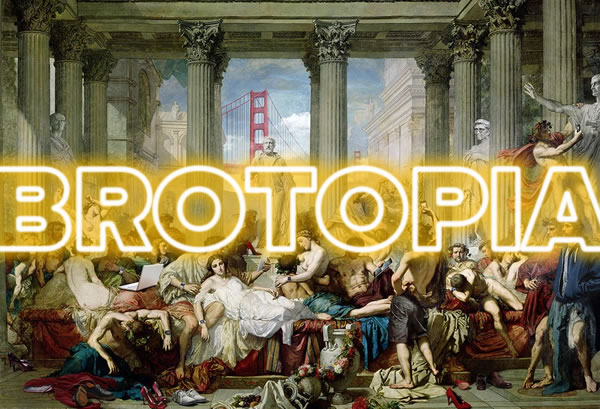 Just before the new year, I posted an article titled Hey, techies: Let’s resolve to be better people in 2018, where I encouraged readers to watch Sarah Lacy’s keynote at Startup Fest, stop encouraging cool girls and brogrammers, learn about the right way to apologize and the Al Capone Theory, and think not just about making cool tech, but also its consequences, especially beyond our privileged bubble.
Just before the new year, I posted an article titled Hey, techies: Let’s resolve to be better people in 2018, where I encouraged readers to watch Sarah Lacy’s keynote at Startup Fest, stop encouraging cool girls and brogrammers, learn about the right way to apologize and the Al Capone Theory, and think not just about making cool tech, but also its consequences, especially beyond our privileged bubble.
Cryptocurrencies, the beginning of the end of white male dominance, and the backlash against tech
It looks as though I wasn’t the only person think about this sort of thing. Fred Wilson, the VC in AVC, also had this on his mind when he wrote his year-in-review post, What Happened in 2017, in which he talked about three seemingly disconnected things that actually have a “backlash” theme: the beginning of the end of white male dominance, how techies are now the bad guys in the popular collective mindset, and cryptocurrencies (which are a backlash against governments and traditional financial institutions).
Wilson ends his article with the backlash against tech:
Tech is the new Wall Street, full of ultra rich out of touch people who have too much power and not enough empathy. Erin Griffith nailed it in her Wired piece from a few weeks ago.
Add to that context the fact that the big tech platforms, Facebook, Google, and Twitter, were used to hack the 2016 election, and you get the backlash. I think we are seeing the start of something that has a lot of legs. Human beings don’t want to be controlled by machines. And we are increasingly being controlled by machines. We are addicted to our phones, fed information by algorithms we don’t understand, at risk of losing our jobs to robots. This is likely to be the narrative of the next thirty years.
Brotopia: Breaking Up the Boys’ Club of Silicon Valley
Continuing the theme of a backlash against white male dominance and techies as the new villains of the popular imagination, Vanity Fair has published an excerpt from an upcoming book titled Brotopia: Breaking Up the Boys’ Club of Silicon Valley written Bloomberg Technology host Emily Chang.
The excerpt they published looks at the exclusive, druggy, sex-heavy, kind-of-like-the-Hellfire-Club (y’know, from the X-Men comics) parties that the big shots in the Valley hold. They’re not held in secret or thought of as scandalous, but proudly hailed as a bold lifestyle choice — a disruption of conventional mores similar to the disruptions to industries and practices wrought by the Valley’s technologies and business.
The excerpt is summarized well by its final paragraph:
It hearkens back to those popular 1980s teen movies which tell the “heartwarming” story of a glasses-wearing nerd who is transformed into the cool, funny kid who gets all the hot chicks. But we’re not living a teenage dream. Great companies don’t spring magically to life when a nerd gets laid three times in a row. Great companies are built in the office, with hard work put in by a team. The problem is that weekend views of women as sex pawns and founder hounders can’t help but affect weekday views of women as colleagues, entrepreneurs, and peers.
How low will people stoop for YouTube views? The answer will shock you.
Celebrity YouTuber Logan Paul is the latest person to learn — well, I hope he’s learned, anyway — that the power to publish to a global audience comes with the responsibility to do some editing. While shooting video in Japan’s Aokigahara forest, the infamous “suicide forest” near Mount Fuji, he and his group encountered the body of someone who appeared to have committed suicide, and he committed it to video, along with a few tasteless jokes.
Many people called Paul out on it, and Paul has apologized, but I have to agree with Philip DeFranco’s assessment:
Just remember this. Before all the extended community outrage against Logan Paul’s “we found a dead body” video, there was a seemingly uncontested 550-600,000 likes on it.
His core audience doesn’t give a fuuuuuuck. Unless youtube does something, this doesn’t hurt him.
— Philip DeFranco (@PhillyD) January 2, 2018


